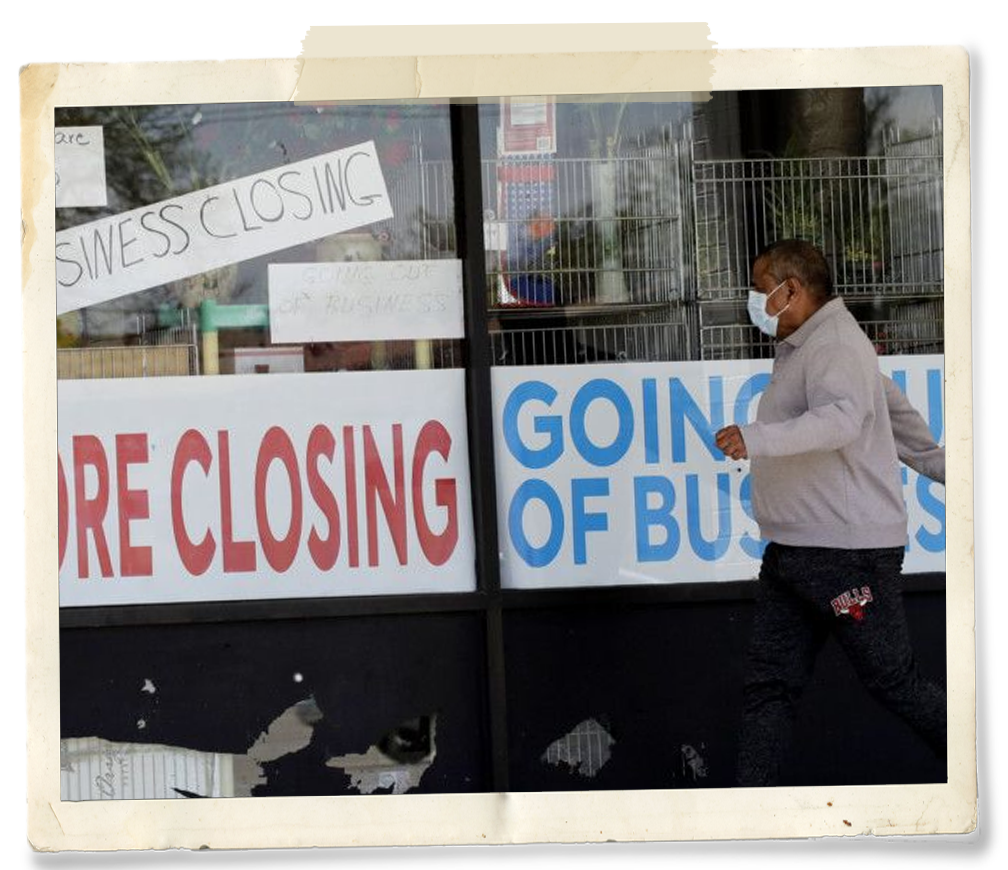Economy in tatters: Job losses, salary cuts, recession

The coronavirus brought plenty of pain. Lives and livelihoods were lost. Economies took a battering. A World Economic Outlook report projected that the global GDP growth would contract by 4.4 per cent in 2020.
In January 2020, my daughter who was planning to pursue her studies abroad called me to tell that she has cleared the IELTS [The International English Language Testing System] exams with a score good enough to get admissions in the universities of her choice.
Everything was going according to her plan until March when coronavirus started shutting down parts of the world. Her exams were postponed, results delayed, universities are unsure when they will reopen. The plan was totally wrecked.
My daughter’s disappointment is small compared to the tragedies around us. In our close circles in the past several months, there were deaths of a few close relatives whose funerals we couldn’t attend.
Some ageing parents and relatives are sick, and we can’t visit them; family members and friends had to shut down their businesses, others lost jobs, and many are staring at a bleak future.

AP
A man looks at signs of a store closed due to COVID-19 in Niles, Illinois, US. Many sectors have been impacted due to the pandemic, the lockdown and uncertainty.
Loss of livelihoods
The latest World Economic Outlook report of the International Monetary Fund (IMF) projected that the global GDP growth would contract by 4.4 per cent in 2020, 0.8 percentage point above the June 2020 projections.
The COVID-19 pandemic has had a more negative impact on economic activity in the first half of 2020 than anticipated, and the recovery is projected to be slow and gradual.
The contraction of economies crippled livelihoods. A report from the International Labour Organisation (ILO) said nearly half of the global workforce is in danger of having their livelihoods destroyed by the pandemic. The ILO said some 1.6 billion people would soon struggle to earn a living.
25 countries
face devastating levels of hunger due to the fallout from the COVID-19 pandemic.
A World Food Programme (WFP) study shows that people in some 25 countries will face devastating levels of hunger due to the fallout from the COVID-19 pandemic. While the greatest concentration of hungry people is in Africa, countries in Latin America and the Caribbean, and in the Middle East and Asia, will also face food shortage.
Most countries are using fiscal and monetary policy tools to contain the impact of the virus on their economies. It is clear that the problems stemming from COVID-19 are far greater than what standard economic theories and policy prescriptions could address.
The pandemic is likely to be arrested in a year or more as several countries have begun vaccination. Vaccinating the world is a time-consuming process. It comes with huge logistical challenges of transportation, storage and distribution that places additional financial burden, especially on underdeveloped countries.
The trail of destruction left by the virus will stay for a while. If the rising debt levels from the fiscal and monetary boost to fight the virus are any indication, our generation and the next are destined to pay the price with acute shortage of jobs and basic necessities linked to a very long period of stagflation.
Looking at the future, if 1.6 billion are going to be unemployed and several million are unsure of their next meal, a foreign university degree may not be of much value to my daughter.